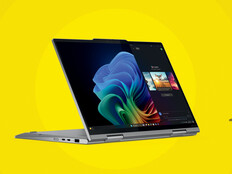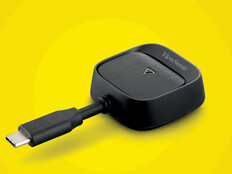Aida Mulugeta | Virginia Tech University
Getting through college requires all kinds of gadgets, because technology has become integral to our lives.
To survive your first semester, the basics you’ll need include a laptop, charger and maybe headphones. Much of the rest is usually available through universities as pay-to-use technology, such as printers and digital textbooks. Still, the demand for tools such as tablets and speakers is rising, both due to their academic benefits and their convenience.
Because all of these devices are important and they all need power, if Virginia Tech were to offer to buy one piece of technology for me, I would pick a wireless charging station or portable charger for Windows and Apple products.
All of the tools average college students have — including laptops, tablets, smart watches, headphones and more — require charging at some point every day, and that usually requires access to an outlet. With a portable charger, you can power up your device even when you can’t access a wall outlet. That makes staying connected while on campus all day a lot easier. You have everything on the go.
DIG DEEPER: Learn how universities provide technology and support for student-athletes.
Even with access to an outlet, it is hard to charge all these devices every day, and sometimes you may accidentally forget to do so. Because these technologies play such an important a role in student life, having one go dead could have a big impact academically. I have had to walk 30 minutes back to my dorm because my MacBook dies quickly, and I need it charged for class. As devices get slimmer, they are getting more powerful, but that requires a lot of energy.
Implementing charging stations around campus, at places like the library and even on the sidewalks, would also be beneficial.
As for portable chargers, these inexpensive pieces of technology are valuable to students on and off campus who do not have time to run around to find an outlet. It allows students to be immersed in class without worrying about a device that’s unable to perform.
Mikenna Lytle | Texas Tech University
Watch to learn how the Microsoft Surface Pro 9 can transform the student experience
Janice Hong | University of Maryland
If my university offered to buy me one piece of technology, I would ask for a tablet. While laptops are widely used in classrooms today, I believe that a tablet can be a useful tool that can help students learn beyond paper and pencil. Here are some of the reasons I would ask for a tablet.
Multifunctionality: Tablets can be used for many different tasks, such as taking and typing notes, browsing the internet, watching lectures and displaying content. Students can also multitask with additional technologies.
Portability: Students are constantly moving around, and the weight of textbooks and paper can place a heavy load on their shoulders. Tablets are lightweight and easy to carry, making them a convenient option for students on the go. Students can hold all of their textbooks and notes in one device and work from anywhere.
READ MORE: What technology can’t college students live without?
Price: If students do not have the money to buy laptops, tablets can be a good alternative. Textbooks can be accessed through a tablet and even may be easier to use. Choosing a tablet may also be more cost-effective compared with paper options.
I use my Apple iPad every day, and it has been one of the most useful technologies I have ever owned. The iPad has changed how I take notes and made my past notes accessible for reference. I believe all students should have access to tablets to enhance their learning.










